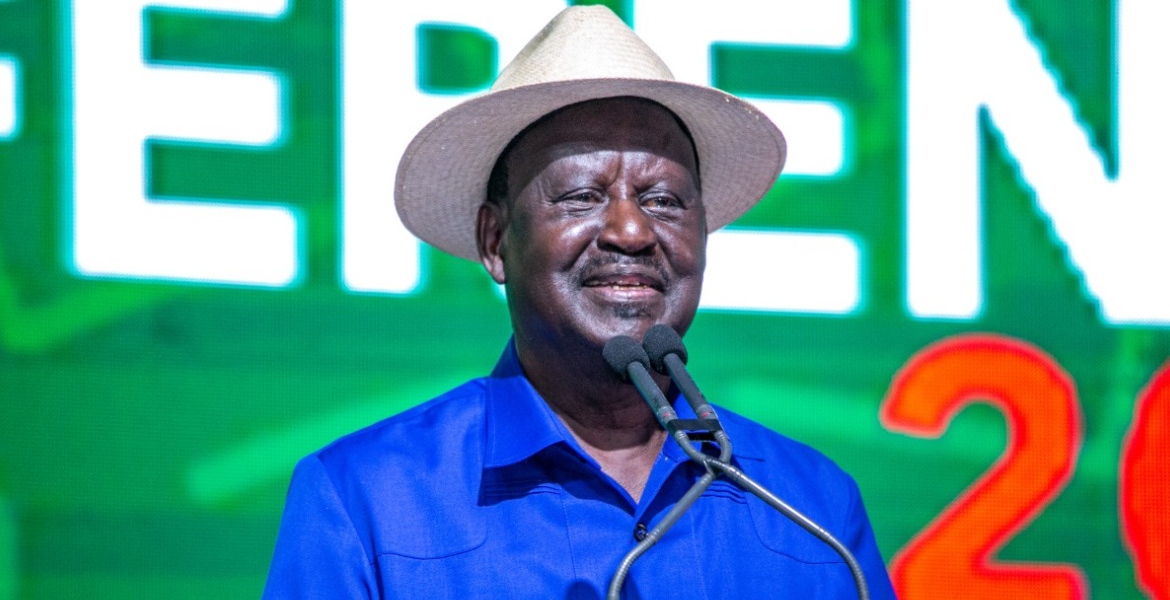Let Counties Work, Raila Tells Senate Over Governor Summonses

ODM leader Raila Odinga has called for sweeping reforms to strengthen oversight structures and ensure fairer distribution of resources.
Speaking at the 2025 Devolution Conference in Homa Bay, Raila delivered a sharp critique of the current system, twelve years after devolution was anchored in the Constitution. At the centre of Raila's remarks is a call to reduce what he describes as excessive interference by the Senate in county affairs. He criticises the common practice of summoning governors to Nairobi for expenditure reviews, arguing that such actions are politically driven and hinder effective service delivery.
In his view, county assemblies should be the primary oversight bodies for governors. The Senate’s involvement, he warns, undermines the autonomy of county governments and disrupts local development efforts—a view shared by many county leaders who say they face unfair levels of scrutiny.
Raila also directed criticism at Parliament, alleging that some Members of Parliament misuse their oversight powers to settle political scores or disrupt development projects. He claims that certain contractors exploit parliamentary processes to delay or sabotage rival initiatives by repeatedly summoning county officials. Such practices, he argues, transform oversight into a tool of extortion rather than a means of ensuring accountability.
Another major point in Raila's address is his opposition to the continued control of the National Government Constituency Development Fund (NG-CDF) and the National Government Affirmative Action Fund (NGAAF) by Members of Parliament. He argues that these funds should be transferred to county governments, in line with their constitutional role in delivering essential services like education and healthcare.
Raila also addressed the wider issue of corruption, which he described as deeply embedded across government and society. He cited procurement and revenue collection as particularly problematic areas within the national executive. Additionally, he criticised the judiciary for enabling impunity through what he described as compromised rulings. The opposition leader claimed that corruption extends beyond politics, involving the private sector and media, where bribery for tenders and biased reporting are alleged to occur.
Council of Governors Chair Ahmed Abdullahi supported Raila's concerns about uneven scrutiny, noting that governors face impeachment, while MPs and Members of County Assemblies (MCAs) often escape accountability. He further proposes the establishment of pension schemes for governors who serve two terms, recognising their contributions to local development.
Adding a practical perspective to the debate, Prime Cabinet Secretary Musalia Mudavadi revealed that county projects worth more than Sh24 billion remain incomplete, underused, or abandoned. He stressed the need to prioritise service delivery and cautioned against political interference that discourages investment. Mudavadi proposed a performance-based funding model that would reward innovation and efficient waste management while penalising poor performance.








Add new comment